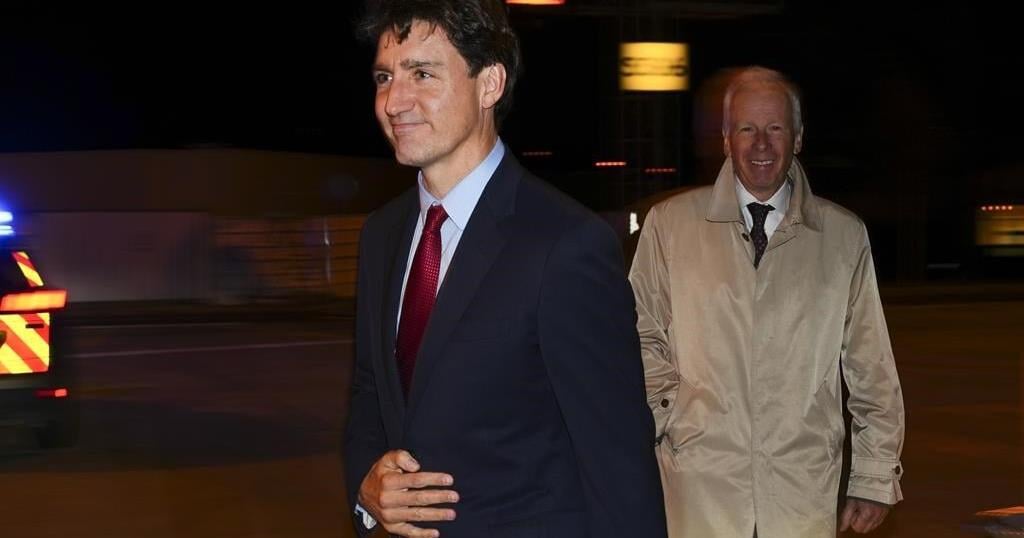PARIS – Prime Minister Justin Trudeau is set to take part in an armchair discussion on artificial intelligence in France today as the Francophonie summit kicks off.
Trudeau is scheduled to talk about AI in the morning, while leaders will hold a session on challenges for French-speaking citizens in the digital age in the afternoon.
As the host of this year’s meeting between French-speaking countries, French President Emmanuel Macron will be welcoming leaders to Villers-Cotterêts and later hosting an official dinner.
The ongoing and widening war in the Middle East, which is affecting Lebanon, a member state of the Organisation de la Francophonie, is also expected to be a topic of discussion for leaders.
The Israeli military on Thursday warned people to evacuate a city and other communities in southern Lebanon that are north of a UN-declared buffer zone, signalling that it may widen a ground operation launched earlier this week against the Hezbollah militant group.
Foreign Affairs Minister Mélanie Joly says she will have a conversation with Lebanon’s information minister during the summit and will be meeting with her French counterpart today to discuss how to bring peace and stability to the Middle East.
This report by The Canadian Press was first published Oct. 4, 2024.


































